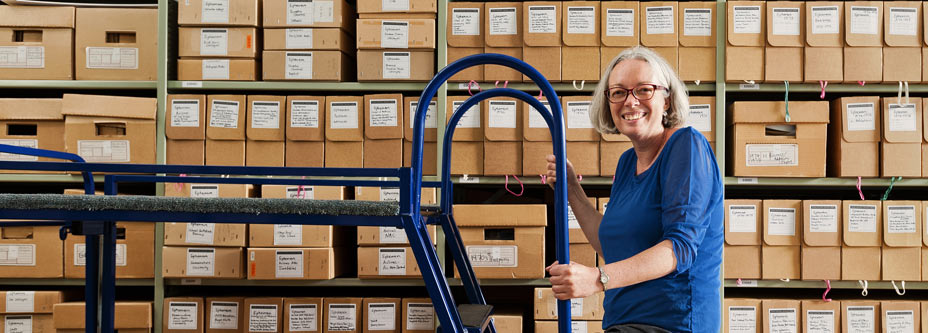
Whatever happened to … Otago's stories?
Lighthearted anecdotes and interesting insights, together with historical facts, will form the basis of Dr Ali Clarke's book to celebrate the University's 150th anniversary.
Don't expect a lot of dry details when Dr Ali Clarke writes a history of the University of Otago to mark the 150th anniversary in 2019.
Expect, instead, a wide-ranging history with plenty of strong characters, interesting anecdotes and fascinating insights into the many and diverse aspects of the life of such an influential institution.
"If you just write facts in a chronological manner it will be dull. Readers are most interested in stories about people and interesting things that have happened, so I really want to marry up the two. I think what I will end up writing is a history that is not chronological, but a theme-based project."
It is early days yet in terms of planning the book, but those themes could range from sections on how the University was founded and run, through to a chapter on buildings, and stories about the student life and experience.
As an experienced historian and author, one of the first things Clarke did was examine what had already been written and scope out the range of information already available.
"Quite a lot of parts of the University have already published histories and sometimes there is unpublished information. When departments are reviewed they have to put in a self-written document which often give fantastic little concise histories," she says.
"So I've been hunting out things like that to get a feel for what's out there and to also prioritise my research because, for example, so much has already been written about the medical school and so little has been written about other parts of the University. So I am trying to concentrate my research on those under-researched areas."
Clarke has launched a blog, University of Otago 1869-2019 - writing a history, to help her uncover more information and help her to identify people in photographs.
It has already proved to be a useful tool, allowing Clarke to tell some interesting stories that may not necessarily make it into the book. This has also generated spontaneous approaches from people who have heard about the project and come forward with information and anecdotes.
"One of the things I am really interested in at the moment is the history of the University Extension Department. It was a real force out in the community so there were tutors in all these little country towns and they would be running courses on history and philosophy at Macandrew Bay and a counselling course in Invercargill and world affairs in Balclutha."
It was mainly learning for enjoyment, although, later, degree-based programmes were started. After enjoying a heyday through the '50s, '60s and '70s, it was wound up in the 1990s.
"It was a really important base for the University out in the community and its history seems to have been a bit lost."
Clarke is also interested in tracking down early international students, especially Pacific Islands students. She would like to know more about their experiences.
The earliest Pasifika student she has found so far is Ratu Jione Dovi who began at Otago in 1929 and graduated MB ChB in 1935.
Residential colleges are also likely to get a chapter, including the now defunct Helensburgh House – a temporary hall of residence set up between 1984 to 1991 in the former nurses' home at Wakari Hospital.
"It's been forgotten because it was short-lived. Because it's gone, the past residents have got no location to centre their nostalgia on, so I think they were really pleased to have the story written up in my blog."
Her blog has already unearthed a few lighter moments, including the perpetrators of a prank involving a Colin McCahon painting in the Student Union. A group of chemistry students hid it in a cupboard for a couple of days after putting up their own copies.
After a few sleepless nights worrying about the safety of the original, it was returned to its rightful place under the cover of darkness.
Clarke is making great use of the University archives kept at the Hocken, where she is employed when not working on the book.
Individual schools and departments have also been supportive, although she has found that some of the more historically-inclined departments have actually been the science departments. Professional schools, such as the Schools of Home Science, Physiotherapy and Pharmacy, have also tended to have recorded more of their own history.
"I think it has to do with their graduates who retain strong links to the school because it is related to their professional careers afterwards – whereas people who study arts and sciences tend to move on to a really wide range of careers and they don't retain quite that same conscious link as alumni of a particular part of the University."
MARK WRIGHT
Photo: Alan Dove